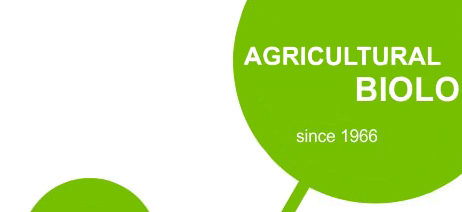doi: 10.15389/agrobiology.2018.1.15eng
UDC 633.491:581.1:577.121
Acknowledgements:
The authors are grateful to Prof. T.A. Gavrilenko (VIR) for the discussion of the manuscript and valuable comments.
Supported by Russian Science Foundation (grant ¹ 16-16-04125)
METABOLOMICS AS A MODERN APPROACH FOR THE INVESTIGATION
OF POTATO PLANT ADAPTATION TO BIOTIC AND ABIOTIC STRESSE
FACTORS
(review)
R.K. Puzanskiy1, 2, V.V. Yemelyanov1, M.F. Shishova1, 2
1Saint-Petersburg State University, 7/9, Universitetskaya nab., St. Petersburg, 199034 Russia, e-mail puzansky@yandex.ru, bootika@mail.ru, mshishova@mail.ru (✉ corresponding author);
2Federal Research Center the Vavilov All-Russian Institute of Plant Genetic Resources, Federal Agency for Scientific Organizations, 42-44, ul. Bol’shaya Morskaya, St. Petersburg, 190000 Russia
ORCID:
Puzanskiy R.K. orcid.org/0000-0002-5862-2676
Yemelyanov V.V. orcid.org/0000-0003-2323-5235
Shishova M.F. orcid.org/0000-0003-3657-2986
Received September 27, 2017
The progress in genomic and proteomic investigations has greatly expanded the range of subjects aimed in discovering of mechanisms involved in the regulation of plant growth and development under changing of environmental conditions. Another systemic biology approach, which is known as metabolomics, has almost the same significance. It focuses on the study of dynamics of low molecular compounds which results from the complex metabolic processes in the cell. The intensity of these processes is under the influence of both biotic and abiotic stress factors. Studies on metabolic analysis are carried out not only with model objects, but also with cultivated plants, including potatoes, listed among top 10 of the most valuable crops. This review aims to summarize the available literature data on systemic biochemical rearrangements detected with metabolic approach in potato under the action of pathogenic viruses and microorganisms, insects, as well as under the influence of abiotic stressors on potato plants. Recent data indicates that metabolic analysis allows characterization of the development and progression of viral and bacterial diseases, as well as testing resistance to the infections in various potato species and varieties (H. Hamzehzarghani et al., 2016; T. Stare et al., 2015; H. Tai et al., 2014; S. Tomita et al., 2017). Significant changes in a number of secondary metabolites are shown. The metabolic approach has sufficient sensitivity to detect also alterations under environmental stress. In the review, it was considered that the results of metabolic rearrangements of the potato cell are directly linked to dehydrogenation, including osmotic and temperature stressors. The changes in the content of amino acids and sugars are of particular importance. However, a number of additional studies are required for evaluation of shifts in potatoes metabolism which are triggered under the combined stress factors action, for example, desiccation and hyperthermia (V. Arbona et al., 2013; M. Drapal et al., 2017; R.D. Hancock et al., 2014). An absolute majority of the metabolic data was obtained with various vegetative organs of potato plants. Unfortunately, metabolic profiles of generative organs have not been studied yet. There is no information on the metabolic profiling of pollen formation, including CMS-forms of potatoes. This indicates the importance of this direction in the investigation of potato metabolome. Further standardization of the metabolic analysis and methods of result processing will make it possible to use the metabolomics not only as an important component of fundamental research, but in time, as a basis for monitoring of collection samples and newly created varieties and hybrids of potatoes. Analysis of modern data indicates their perspective for phenotyping of different potato genotypes, as well as for identifying forms that are resistant to various types of unfavorable conditions.
Keywords: metabolomics, Solanum spp., potato, biotic stress, pathogens, viral infection, fungal infection, pests, abiotic stress.
REFERENCES
- Aliferis K.A., Jabaji S. FT-ICR/MS and GC-EI/MS metabolomics networking unravels global potato sprout's responses to Rhizoctonia solani infection. PLoS ONE, 2012, 7(8): e42576 CrossRef
- Oliver S.G., Winson M.K., Kell D.B., Baganz F. Systematic functional analysis of the yeast genome. Trends Biotechnol., 1998, 16(9): 373-378.
- Tweeddale H., Notley-McRobb L., Ferenci T. Effect of slow growth on metabolism of Escherichia coli, as revealed by global metabolite pool (“Metabolome”) analysis. J. Bacteriol., 1998, 180(19): 5109-5116.
- Aliferis K.A., Chrysayi-Tokousbalides M. Metabolomics in pesticide research and development: review and future perspectives. Metabolomics, 2011, 7: 35 CrossRef
- Hong J., Yang L., Zhang D., Shi J. Plant metabolomics: an indispensable system biology tool for plant science. Int. J. Mol. Sci., 2016, 17(6): 767 CrossRef
- Birch P.R.J., Bryan G., Fenton B., Gilroy E.M., Hein I., Jones J.T., Prashar A., Taylor M.A., Torrance L., Toth I.K. Crops that feed the world. 8: Potato: are the trends of increased global production sustainable? Food Secur., 2012, 4(4): 477-508 CrossRef
- Roessner U., Wagner C., Kopka J., Trethewey R.N., Willmitzer L. Simultaneous analysis of metabolites in potato tuber by gas chromatography—mass spectrometry. Plant J., 2000, 23(1): 131-142 CrossRef
- Puzanskii R.K., Emel'yanov V.V., Gavrilenko T.A., Shishova M.F. Vavilovskii zhurnal genetiki i selektsii, 2017, 21(1): 112-123 CrossRef (in Russ.).
- Kogovšek P., Pompe-Novak M., Petek M., Fragner L., Weckwerth W., Gruden K. Primary metabolism, phenylpropanoids and antioxidant pathways are regulated in potato as a response to potato virus Y infection. PLoS ONE, 2016, 11(1): e0146135 CrossRef
- Friedman M. Potato glycoalkaloids and metabolites: roles in the plant and in the diet. J. Agric. Food Chem., 2006, 54(23): 8655-8681 CrossRef
- Ginzberg I., Tokuhisa J.G., Veilleux R.E. Potato steroidal glycoalkaloids: Biosynthesis and genetic manipulation. Potato Res., 2009, 52(1): 1-15 CrossRef
- Barker H., Dale M.F.B. Resistance to viruses in potato. In: Natural resistance mechanisms of plants to viruses. G. Loebenstein, J.P. Carr (eds.). Springer, Dordrecht, 2006: 341-366.
- Makarova S.S., Makarov V.V., Tal'yankii M.E., Kalinina N.O. Vavilovskii zhurnal genetiki i selektsii, 2017, 21(1): 62-73 CrossRef (in Russ.).
- Pompe-Novak M., Gruden K., Baebler Š., Krecic-Stres H., Kovac M., Jongsma M., Ravnikar M. Potato virus Y induced changes in the gene expression of potato (Solanum tuberosum L.). Physiol. Mol. Plant Pathol., 2006, 67(3-5): 237-247 CrossRef
- Baebler Š., Krecic-Stres H, Rotter A., Kogovšek P., Cankar K., Kok E.J., Gruden K., Kovac M., Zel J., Pompe-Novak M., Ravnikar M. PVYNTN elicits a diverse gene expression response in different potato genotypes in the first 12 h after inoculation. Mol. Plant Pathol., 2009, 10(2): 263-275 CrossRef
- Goyer A., Hamlin L., Crosslin J.M., Buchanan A., Chang J.H. RNA-Seq analysis of resistant and susceptible potato varieties during the early stages of potato virus Y infection. BMC Genomics, 2015, 16: 472 CrossRef
- Quenouille J., Vassilakos N., Moury B. Potato virus Y: a major crop pathogen that has provided major insights into the evolution of viral pathogenicity. Mol. Plant Pathol., 2013, 14(5): 439-452 CrossRef
- Crosslin J.M., Hamm P.B., Eastwell K.C., Thornton R.E., Brown C.R., Corsini D., Shiel P.J., Berger P.H. First report of the necrotic strain of potato virus Y (PVYN) on potatoes in the Northwestern United States. Plant Dis., 2002, 86(10): 1177-1177 CrossRef
- Stare T., Ramšak Z., Blejec A., Stare K., Turnšek N., Weckwerth W., Wienkoop S., Vodnik D., Gruden K. Bimodal dynamics of primary metabolism-related responses in tolerant potato-Potato virus Y interaction. BMC Genomics, 2015, 16: 716 CrossRef
- Fry W. Phytophthora infestans: the plant (and R gene) destroyer. Mol. Plant Pathol., 2008, 9(3): 385-402 CrossRef
- Haas B., Kamoun S., Zody M., Jiang R., Handsaker R., Cano L. et al. Genome sequence and analysis of the Irish potato famine pathogen Phytophthora infestans. Nature, 2009, 461(7262): 393-398 CrossRef
- Ma Z., Michailides T.J. Advances in understanding molecular mechanisms of fungicide resistance and molecular detection of resistant genotypes in phytopathogenic fungi. Crop Prot., 2005, 24(10): 853-863 CrossRef
- Turkensteen L.J. Durable resistance of potatoes against Phytophthora infestans. In: Durability of disease resistance. T.H. Jacobs, J.E. Parlevliet (eds.). Kluwer Academic Publishers, Dordrecht, 1993: 115-124.
- Akino S., Takemoto D., Hosaka K. Phytophthora infestans: a review of past and current studies on potato late blight. J. General Plant Pathol., 2013, 80(1): 24-37 CrossRef
- Kushalappa A., Gunnaiah R. Metabolo-proteomics to discover plant biotic stress resistance genes. Trends Plant Sci., 2013, 18(9): 522-531 CrossRef
- Pushpa D., Yogendra K., Gunnaiah R., Kushalappa A., Murphy A. Identification of late blight resistance-related metabolites and genes in potato through nontargeted metabolomics. Plant Mol. Biol. Rep., 2013, 32(2): 584-595 CrossRef
- Yogendra K., Kushalappa A., Sarmiento F., Rodriguez E., Mosquera T. Metabolomics deciphers quantitative resistance mechanisms in diploid potato clones against late blight. Funct. Plant Biol., 2014, 42(3): 284-298 CrossRef
- Yogendra K., Pushpa D., Mosa K., Kushalappa A., Murphy A., Mosquera T. Quantitative resistance in potato leaves to late blight associated with induced hydroxycinnamic acid amides. Funct. Integrat. Genomics, 2014, 14(2): 285-298 CrossRef
- Tomita S., Ikeda S., Tsuda S., Someya N., Asano K., Kikuchi J., Chikayama E., Ono H., Sekiyama Y. A survey of metabolic changes in potato leaves by NMR-based metabolic profiling in relation to resistance to late blight disease under field conditions. Magn. Reson. Chem., 2017, 55(2): 120-127 CrossRef
- Abu-Nada Y., Kushalappa A.C., Marshall W.D., Al-Mughrabi K., Murphy A. Temporal dynamics of pathogenesis-related metabolites and their plausible pathways of induction in potato leaves following inoculation with Phytophthora infestans. Eur. J. Plant Pathol., 2007, 118(4): 375-391 CrossRef
- Hamzehzarghani H., Vikram A., Abu-Nada Y., Kushalappa A.C. Tuber metabolic profiling of resistant and susceptible potato varieties challenged with Phytophthora infestans. Eur. J. Plant Pathol., 2016, 145(2): 277-287 CrossRef
- Yogendra K.T., Kushalappa A.S. Integrated transcriptomics and metabolomics reveal induction of hierarchies of resistance genes in potato against late blight. Funct. Plant Biol., 2016, 43(8): 766-782 CrossRef
- Hide G., Read P., Sandison J.P. Stem canker (Rhizoctonia solani) of maincrop potatoes. II. Effects on growth and yield. Ann. Appl. Biol., 1985, 106(3): 423-437 CrossRef
- Carling D., Leiner R., Westphale P. Symptoms, signs and yield reduction associated with Rhizoctonia disease of potato induced by tuberborne inoculum of Rhizoctonia solani AG-3. American Potato Journal, 1989, 66(11): 693-701 CrossRef
- Balendres M.A., Nichols D.S., Tegg R.S., Wilson C.R. Metabolomes of potato root exudates: Compounds that stimulate resting spore germination of the soil-borne pathogen Spongospora subterranean. J. Agric. Food Chem., 2016, 64(40): 7466-7474 CrossRef
- McLeod C., Tolman J.H. Evaluation of losses in potatoes. In: Potato pest management in Canada: Proceedings of a Symposium on Improving Potato Pest Protection, Fredericton, NB. G. Boiteau, R.P. Singh, R.H. Parry (eds.). New Brunswick Department of Agriculture, Fredericton, 1987: 363-373.
- Kozukue N., Yoon K.-S., Byun G.-I., Misoo S., Levin C.E., Friedman M. Distribution of glycoalkaloids in potato tubers of 59 accessions of two wild and five cultivated Solanum species. J. Agric. Food Chem., 2008, 56(24): 11920-11928 CrossRef
- Shakya R., Navarre D.A. LC-MS analysis of solanidane glycoalkaloid diversity among tubers of four wild potato species and three cultivars (Solanum tuberosum). J. Agric. Food Chem., 2008, 56(16): 6949-6958 CrossRef
- Barbour J.D., Kennedy G.G. Role of steroidal glycoalkaloid a-tomatine in host-plant resistance of tomato to Colorado potato beetle. J. Chem. Ecol., 1991, 17(5): 989-1005 CrossRef
- Rangarajan A., Miller A.R., Veilleux R.E. Leptine glycoalkaloids reduce feeding by Colorado potato beetle in diploid Solanum sp. hybrids. J. Am. Soc. Hortic. Sci., 2000, 125(6): 689-693.
- Sabotic J., Smid I., Gruden K., Gašparic M.B., Koruza K., Petek M., Pohleven J., Brzin J., Janko K., Zel J. Inhibition of the growth of Colorado potato beetle larvae by macrocypins, protease inhibitors from the parasol mushroom. J. Agric. Food Chem., 2013, 61(51): 12499-12509 CrossRef
- King R.R., Pelletier Y., Singh R.P., Calhoun L.A. 3,4-Di-Oisobutyryl-6-O-caprylsucrose: the major component of a novel sucrose ester complex from the type B glandular trichomes of Solanum berthaultii Hawkes (PI473340). J. Chem. Soc., Chem. Commun., 1986, (14): 1078-1079 CrossRef
- Carter C.D., Gianfagna T.J., Sacalis J.N. Sesquiterpenes in glandular trichomes of a wild tomato species and toxicity to the Colorado potato beetle. J. Agric. Food Chem., 1989, 37(5): 1425-1428 CrossRef
- Tai H., Worrall K., Pelletier Y., De Koeyer D., Calhoun L. Comparative metabolite profiling of Solanum tuberosum against six wild Solanum species with Colorado potato beetle resistance. J. Agric. Food Chem., 2014, 62(36): 9043-9055 CrossRef
- Plischke A., Choi Y.H., Brakefield P.M., Klinkhamer P.G.L., Bruinsma M. Metabolomic plasticity in GM and non-GM potato leaves in response to aphid herbivory and virus infection. J. Agric. Food Chem., 2012, 60(6): 1488-1493 CrossRef
- Plischke A. Non-target effects of GM potato: an eco-metabolomics approach. PhD thesis. Leiden University, The Netherlands, 2013.
- Evers D., Lefevre I., Legay S., Lamoureux D., Hausman J., Rosales R.O., Marca L.R., Hoffmann L., Bonierbale M., Schafleitner R. Identification of drought-responsive compounds in potato through a combined transcriptomic and targeted metabolite approach. J. Exp. Bot., 2010, 61(9): 2327-2343 CrossRef
- Arbona V., Manzi M., Ollas C., Gómez-Cadenas A. Metabolomics as a tool to investigate abiotic stress tolerance in plants. Int. J. Mol. Sci., 2013, 14(3): 4885-4911 CrossRef
- Iwama K., Yamaguchi J. Abiotic stresses. In: Handbook of potato production, improvement and postharvest management. J. Gopal, S.M.P. Khurana (eds.). Food Product Press, NY, 2006: 231-278.
- Drapal M., Vignolo E.R.F., Rosales R.O.G., Bonierbale M., Mihovilovich E., Fraser P.D. Identification of metabolites associated with water stress responses in Solanum tuberosum L. clones. Phytochemistry, 2017, 135: 24-33 CrossRef
- Vasquez-Robinet C., Mane S.P., Ulanov A.V., Watkinson J.I., Stromberg V.K., De Koeyer D., Schafleitner R., Willmot D.B., Bonierbale M., Bohnert H.J., Grene R. Physiological and molecular adaptations to drought in Andean potato genotypes. J. Exp. Bot., 2008, 59(8): 2109-2123 CrossRef
- Sprenger H., Erban A., Seddig S., Rudack K., Thalhammer A., Le M.Q., Walther D., Zuther E., Köhl K.I., Kopka J., Hincha D.K. Metabolite and transcript markers for the prediction of potato drought tolerance. Plant Biotechnol. J., 2017 (in press) CrossRef
- Bündig C., Blume C., Peterhänsel C., Winkelmann T. Changed composition of metabolites in Solanum tuberosum subjected to osmotic stress in vitro: is sorbitol taken up? Plant Cell Tiss. Organ Cult., 2016, 127(1): 195-206 CrossRef
- Bündig C., Jozefowicz A.M., Mock H.P., Winkelmann T. Proteomic analysis of two divergently responding potato genotypes (Solanum tuberosum L.) following osmotic stress treatment in vitro. J. Proteomics, 2016, 143: 227-241 CrossRef
- Schafleitner R., Gaudin A., Gutierrez R., Alvarado C., Bonierbale M. Proline accumulation and real time PCR expression analysis of genes encoding enzymes of proline metabolism in relation to drought tolerance in Andean potato. Acta Physiologiae Plantarum, 2007, 29(1): 19-26 CrossRef
- Iwaki T., Guo L., Ryals J.A., Yasuda S., Shimazaki T., Kikuchi A., Watanabe K.N., Kasuga M., Yamaguchi-Shinozaki K., Ogawa T., Ohta D. Metabolic profiling of transgenic potato tubers expressing Arabidopsis dehydration response element-binding protein 1A (DREB1A). J. Agric. Food Chem., 2013, 61(4): 893-900 CrossRef
- Levy D., Veilleux R.E. Adaptation of potato to high temperatures and salinity — a review. Am. J. Potato Res., 2007, 84(6): 487-506 CrossRef
- Van Dam J., Kooman P.L., Struik P.C. Effects of temperature and photoperiod on early growth and final number of tuber in potato (Solanum tuberosum L.). Potato Res., 1996, 39(1): 51-62 CrossRef
- Hijmans R.J. The effect of climate change on global potato production. Am. J. Pot. Res., 2003, 80(4): 271-279 CrossRef
- Hancock R.D., Morris W.L., Ducreux L.J.M., Morris J.A., Usman M., Verrall S.R., Fuller J., Simpson C.G., Zhang R., Hedley P.E., Taylor M.A. Physiological, biochemical and molecular responses of the potato (Solanum tuberosum L.) plant to moderately elevated temperature. Plant Cell Environ., 2014, 37(2): 439-450 CrossRef
- Abdelrahman M., Burrittc D.J., Tran L.-S.P. The use of metabolomic quantitative trait locus mapping and osmotic adjustment traits for the improvement of crop yields under environmental stresses. Semin. Cell Dev. Biol., 2017, Jun 28, pii: S1084-9521(16)30394-9 (Epub ahead of print) CrossRef
- Bethke P.C., Halterman D.A., Jansky S. Are we getting better at using wild potato species in light of new tools? Crop Sci., 2017, 57(3): 1241-1258 CrossRef
- Jansky S.H., Charkowski A.O., Douches D.S., Gusmini G., Richael C., Bethke P.C., Spooner D.M., Novy R.G., De Jong H., De Jong W.S., Bamberg J.B., Thompson A.L., Bizimungu B., Holm D.G., Brown C.R., Haynes K.G., Sathuvalli V.R., Veilleux R.E., Miller J.C. Jr., Brad-een J.M., Jiang J. Reinventing potato as a diploid inbred line-based crop. Crop Sci., 2016, 56(4): 1412-1422 CrossRef
- Anisimova I.N., Gavrilenko T.A. Vavilovskii zhurnal genetiki i selektsii, 2017, 21(1): 83-95 CrossRef (in Russ.).
- Paupiere M.J., van Heusden A.W., Bovy A.G. The metabolic basis of pollen thermo-tolerance: perspectives for breeding. Metabolites, 2014, 4(4): 889-920 CrossRef













